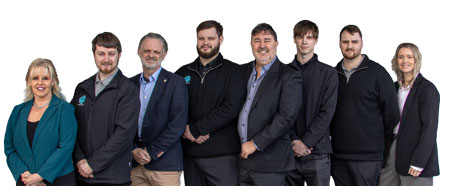Ransomware and Your Computer
Five Tips To Avoid Ransomware.
What is ransomware?
Essentially, it’s a virus that puts a computer password on all your personal files. It typically attacks photos, Microsoft Word and Excel documents, PDFs and a variety of other files that are stored in your laptop or desktop computer. Once your files have been processed by the ransomware virus you will not be able to access them without getting the password or encryption key from the rat bag who invented it and got your computer infected. Here’s where it gets bad…
Sometimes they ask for thousands of dollars, sometimes they have “moved on” and can’t be contacted. Sometimes they take your money and don’t provide a password in return to release your computer files.
And the news gets worse. Because of the nature of how the files are encrypted, it is not possible to decode without the password. L
The only way to avoid this disaster is not get hit in the first place. These tips will help.
Tip 1: Update your Computer OS
Make the effort and go to your Windows Action Center and install all recommended OS updates. If you have a Mac, click on the Apple on the top left and then, 'Software Update'. It only takes a few minutes which is a cheap way to avoid repairs. There is a reason why Microsoft and Apple are issuing these patches for your computer; they make your system more security and sometimes better - though if it's Microsoft it's probably more like "occasionally" better. Always keep your system up-to-date.
Tip 2: Be Careful Where You Click
Ransomware has many ways to infect your computer or laptop usually with a virus or malware such as what happened with WannaCry. Do not click on links that you do not recognize and do not open email attachments if you are not expecting them. Avoid using P2P services e.g BitTorrent or uTorrent.
Tip 3a: Create Regular Backups
Ransomware encrypts your files so you can't access them any more. The only way you can have your files back, without paying the scoundrels the ransom is by creating regular backups of your data. Then you can restore this to your computer or laptop. If you end up being infected, you'll need some help to completely wipe your system, and restore your files, photos and emails etc from your computer backup.
Tip 3b: Create Regular, ENCRYPTED, Backups
Ransomware encrypts your computer files, so why not beat them to it and encrypt them yourself before they can get to them. Specifically we suggest using a backup program so that your BACKUP (not the computer itself) is encrypted. This way the ransomware cannot see the files to infect them.
There are some backup apps for your computer that do that well, here at Computer Help NZ usually use VEEAM.
Tip 3c: Create Regular, encrypted, OFFSITE, Backups
If your backup drive is not plugged into the computer (desktop, pc, laptop etc) it can't get ransomed! But it also can’t backup! The solution? Have two backup drives for your computer. That way even in the worst case only ONE drive can get infected. This is a super duper protection but if you are worried about your computer files, and don’t want to risk an expensive repair, then this may be worth doing.
Tip 4: Install Antivirus Software
Antivirus is only one part of the security equation but it is an important one. You cannot just have antivirus for your computer and not do anything else, but, conversely if you do not have up-to-date antivirus that is effective, you will be at risk. We suggest either Microsoft Defender or Eset AntiVirus.
Eset is about $70 a year and from our experience is slightly better protection than Defender. We recommend to anyone who has had some sort of virus, malware or Ransomware attack or anyone who wants to be sure of their security.
Tip 5: Install Pop-Up Blockers
If you’re using Chrome or Firefox on your laptop or desktop then you should install uBlock Origin. (but NOT “uBlock” – this product was taken by another programmer and has been commercialised so that advertisers can pay to get passed the ad block.) This will stop ads – which is nice. But more importantly it will stop infected pop-ups that could really mess up your computer.
If you use Internet Explore or Edge I strongly suggest you move to Chrome or Firefox because they are more secure. Also, there is no uBlock Origin for them. If you REALLY love your IE or Edge then you can install an extension called Ad Block Pro. It’s not too bad.
FIREFOX extensions for your computer
CHROME extensions for your computer
If you find all of this too confusing, you are welcome to call us at Computer Help NZ, and we’ll help you out. All your computer needs are our speciality. We’ve been serving the people of Christchurch for over 20 years now. We love offering our computer users fast and friendly service. We fix laptops, desktops, tablets and phones. We're great at making sure your computer security is top-notch and setting up backup too!



